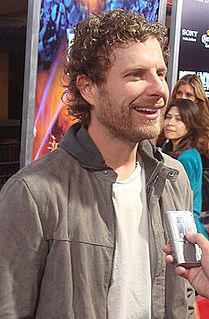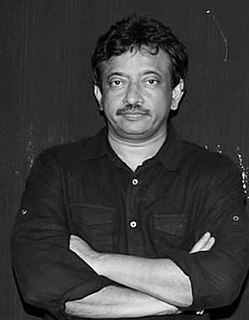A Quote by John Cassavetes
Filmmaking is exploring. Why would I want to make a film about something I already understand?
Quote Topics
Related Quotes
I won't call my work entertainment. It's exploring. It's asking questions of people, constantly. 'How much do you feel? How much do you know? Are you aware of this? Can you cope with this?' A good movie will ask you questions you don't already know the answers to. Why would I want to make a film about something I already understand?
I think that film festivals, we're very often given to understand, are about filmmakers and about films and about the industry of filmmaking. I don't believe that they are, I believe that film festivals are about film audiences, and about giving an audience the encouragement to feel really empowered and to stretch the elastic of their taste.
I left film because I felt that photography was my art. It was something I could do on my own, whereas film was so collaborative. I thought as a photographer I could make something that was artistic and that was mine, and I liked that. And it wasn't until I got back into film and I have very small crews and I could do very tiny filmmaking that wasn't 100 people that I still felt that I was making something artistic as a filmmaker. So, you know, I'm an artist, and whether it's photography or film, I want my voice to be there and I think my voice is very strong in this film.
I can understand that an audience, buying a ticket to see a picture of mine, wants to see something funny because they feel confident that at least I have a fighting chance to make a funny film when I make a film, whereas if I make a dramatic film there's one chance in a thousand that it's really going to come out great, so I understand how they feel about that and they're completely right.
I ask myself all the time, 'Why keep doing this?' If I wasn't exploring or finding something to write about that was personal or meant something, there'd be no reason. If I was ever making a record just to make a record, or ever just like, 'Just put something out there that someone will buy,' I would quit.
I think a lot of people go into filmmaking thinking, "How can I make a career?" And so when they make their first film, they make it thinking, "Well, this'll be the one that gets me to the place where I can make the second film the way I want to make it, and that'll get me to the place where I can make $100 million on the third film." And I thought, "Well, if I put sustainability at the bottom of my priority list, then what opportunities is that going to free me up to pursue?" And that's what I've always done.
I thought I should try something relatively inexpensive, relatively contained, relatively small. I started working on a feature, a film I'd still like to make: a very talky film of people and ideas about our contemporary state with regard to relationships, marriage, sex, and romance. I started trying to educate myself about filmmaking.
Writing is my way of trying to understand vast things that probably I'll never truly understand, a way of exploring a Big Question, of wrestling meaning from the chaos of life. Consequently, when I choose to write overtly or even secretly about my real life, it's always something difficult and complicated that I'm longing to make sense of.
Sometimes the theme of the film is something that comes down to the way you designed the film - that you're saying something about the world. And it's one of the things that I think animation can do, in a way that other forms of filmmaking can't do. Because every single thing you see has got to be designed and created.



































